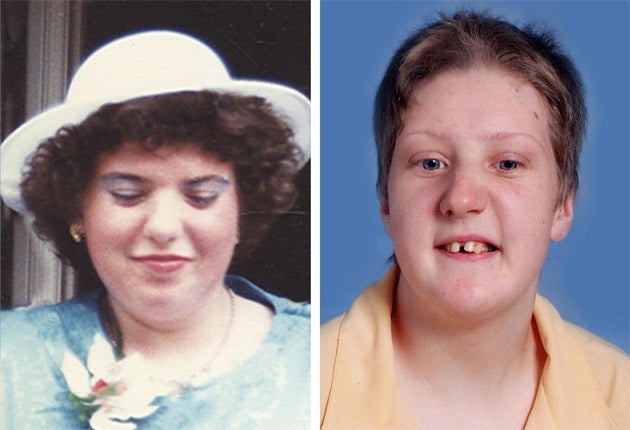Four years on, officers face punishment for failing Fiona Pilkington

Four police officers will face misconduct proceedings over the death of a woman who killed herself and her disabled daughter after years of harassment, but they will not lose their jobs.
Fiona Pilkington, 38, set fire to her car at a layby near her home in Leicestershire nearly four years ago, while she and her 18-year-old daughter, Francecca Hardwick, sat inside.
They had suffered almost a decade of torment at the hands of youths who taunted them and pelted their home with stones, eggs and flour.
An Independent Police Complaints Commission (IPCC) inquiry found that Leicestershire officers should have done more to identify the vulnerability of Ms Pilkington and her daughter after a litany of complaints to police about antisocial behaviour towards the family.
An inspector, a sergeant and two constables will face misconduct proceedings, but the Chief Constable, Simon Cole, said that the four officers identified in the report were not in danger of being dismissed from the force because their actions were not classed as gross misconduct.
He said: "What happens now is they will face a misconduct meeting, which is a formal part of a misconduct process, and that will take place over the coming weeks and months.
"The recommendation of the independent investigation is not that their jobs are at jeopardy... losing their jobs is not a sanction available."
Mr Cole offered "unreserved apologies" for any of the force's actions which may have contributed to the deaths.
The report catalogued 33 incidents between November 1997 and October 2007 when the family contacted police to complain about harassment.
Ms Pilkington also wrote once directly to police and twice to her local MP, who forwarded the letters to the force, complaining of harassment and antisocial behaviour.
The report concluded that the officers had systems in place which should have highlighted the problems the family were suffering, and that incidents "were too often dealt with by police officers in isolation and with an unstructured approach".
The IPCC commissioner Amerdeep Somal said the family could not have done more to highlight their plight and police missed "several opportunities" to intervene.
She added: "Fiona, her mother, her neighbours and MP had all contacted the police to inform them that she had repeated and justifiable concerns about her family's predicament. Yet, no one person gripped these reports and took charge to strategically manage and oversee what should have been a targeted police response. There was nothing in place to ensure the Pilkington family were considered by police as vulnerable or repeat victims, contrary to the force's own strategy."
An inquest held two years ago found that Ms Pilkington, her daughter and her severely dyslexic son Anthony, 19, suffered years of torment from a gang of up to 16 youths, some as young as 10.
The family's ordeal included stones, eggs and flour being thrown at their home, while the mob once shouted at Francecca, who had the mental age of a four-year-old, to lift up her nightdress.
Richard Hawkes, chief executive of the disability charity Scope, said disabled people would find the failings outlined in the report "all too familiar".
He said: "While some positive steps have been taken in recent years, we hope that this IPCC report will drive further, much-needed improvements in the way police forces respond to hate crime and persistent antisocial behaviour against disabled people."
Barrie Roper, chairman of Leicestershire Police Authority, said the force had already implemented the recommendations put forward in the report.
Subscribe to Independent Premium to bookmark this article
Want to bookmark your favourite articles and stories to read or reference later? Start your Independent Premium subscription today.
